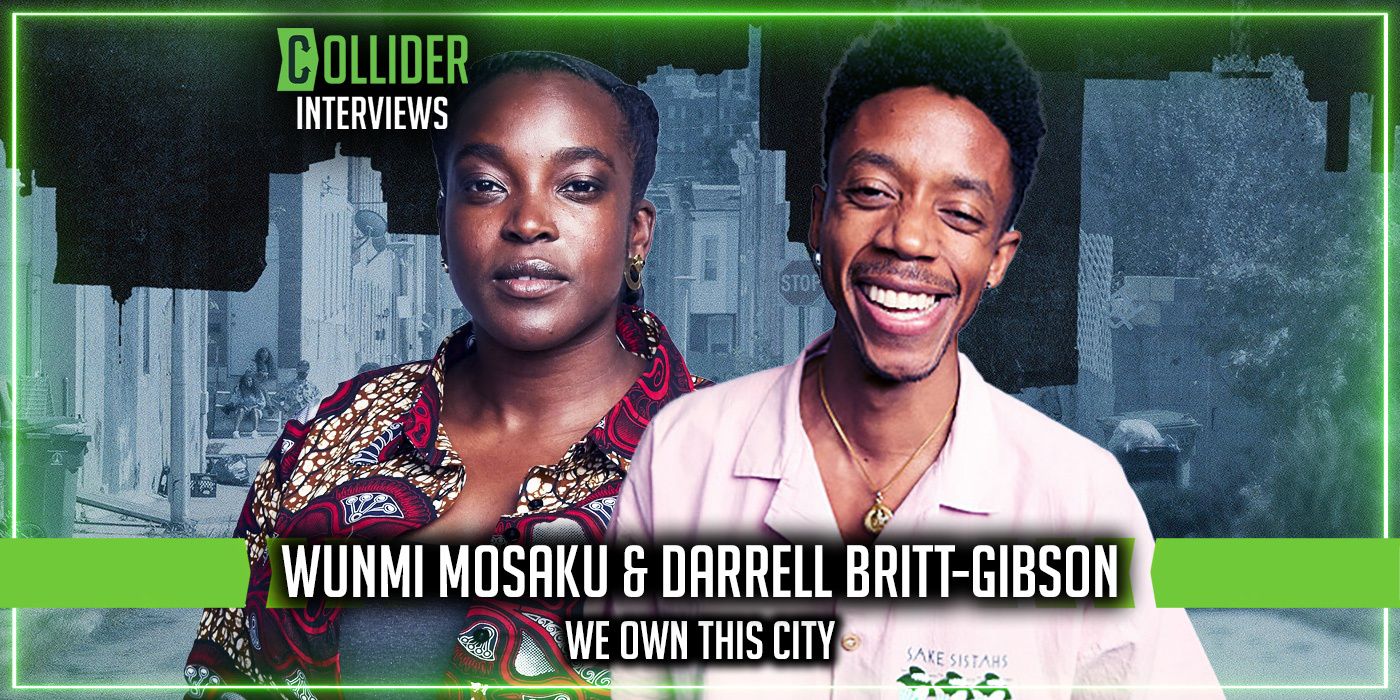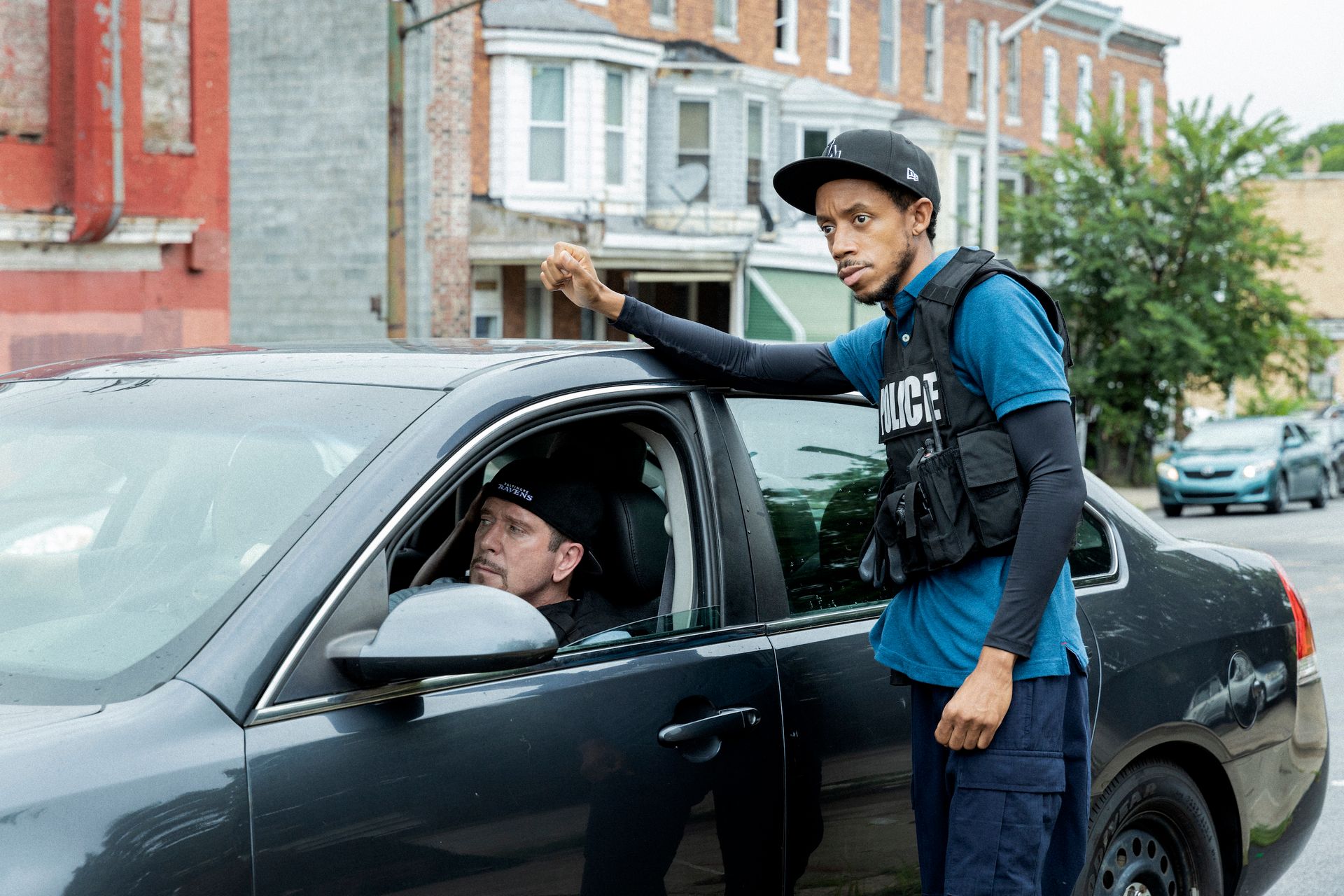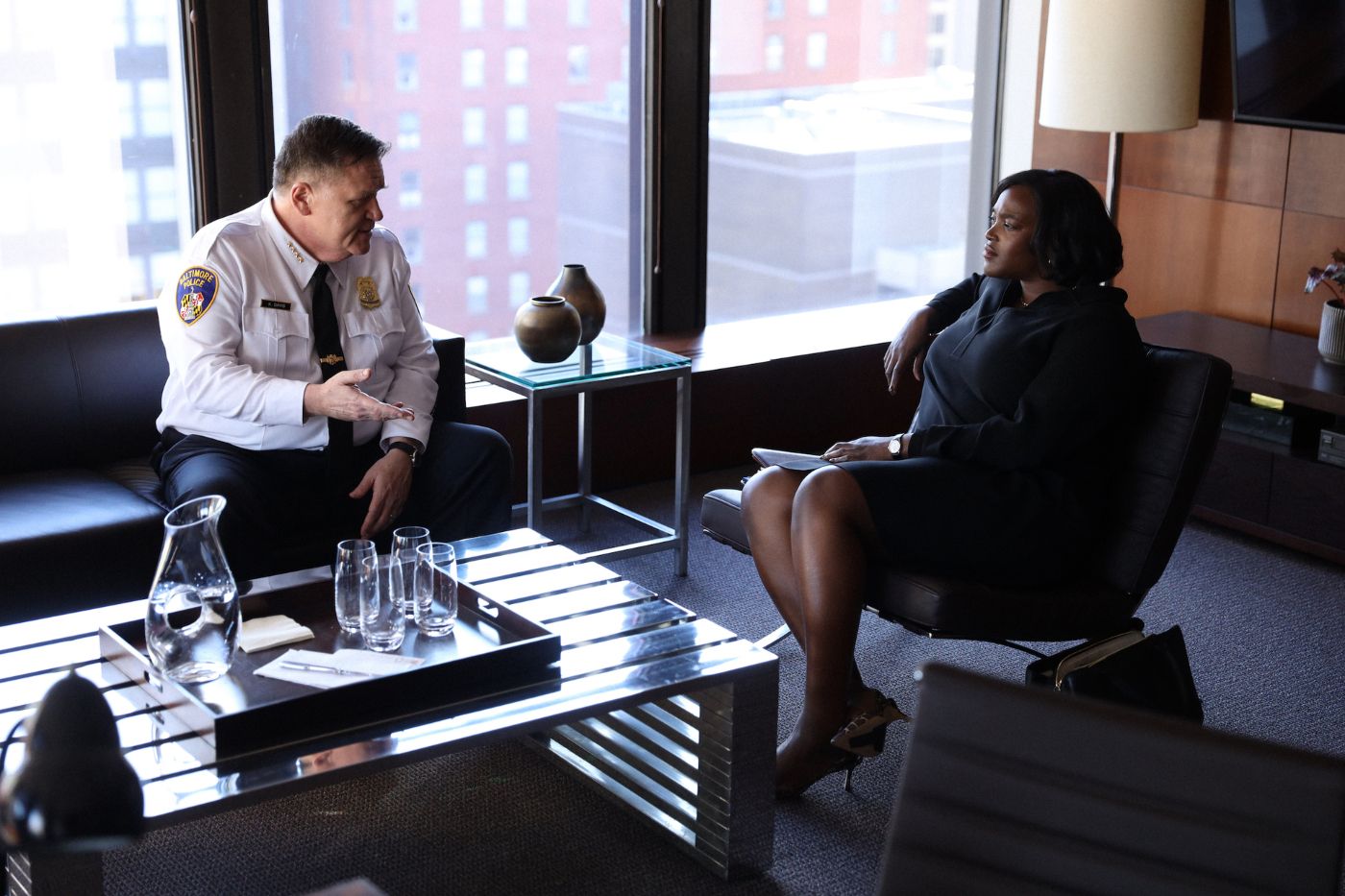Editor’s note: The following interview includes some spoilers for We Own This City.
From executive producers George Pelecanos and David Simon, and based on the book by Baltimore Sun reporter Justin Fenton about the corruption that led to the collapse of the Baltimore Police Department’s Gun Trace Task Force, the HBO six-episode limited series We Own This City illustrates what happens when results are prioritized over actual police work. After decades of a relentless drug war that resulted in mass incarceration, Sgt. Wayne Jenkins (Jon Bernthal) was at the center of the unit that went rogue, brutally pursuing citizens and drug dealers for their own gain.
During this interview with Collider, co-stars Wunmi Mosaku (who plays Nicole Steele, an attorney assigned to the Civil Rights Division of the DOJ that was investigating the policing practices in Baltimore) and Darrell Britt-Gibson (who plays Jemell Rayam, one of the officers caught up in the investigation) talked about how they felt about this material, why Britt-Gibson had to convince himself to take the role, that action is more important than conversation, how it’s not the job of the people who are being hunted to stop being hunted, and the differences in policing between America and other parts of the world.
Collider: I love the projects that David Simon and George Pelecanos do because they always make me feel smarter since I always learn something, but at the same time, they also always make me angry and frustrated and sad, as well. How did you guys feel about this material? Did you get all of the scripts ahead of time and have time to really absorb all of this?
WUNMI MOSAKU: Yeah, we got the scripts ahead of time. I didn’t get the scripts for the audition. I got episodes one to three for the audition. But yeah, we had all six episodes. We also had the book. But there’s a lot. I just tracked each episode and where we were in the story, for my character anyway, and what she knew and what she didn’t know. There’s a lot of information and a lot of names.
DARRELL BRITT-GIBSON: I tried to not do this role, not because of the incredible creators behind it, but just because the weight of it was so much. I remember when I got it sent to me, I was like, “Nah, there’s no way.” But then, I was like, “You know what? I haven’t done a tape in a little while, so let me just work it out. Let me just have some fun.” And then, it kept going further and further, and something was calling me to it. But I really tried hard to not do this. Higher powers were calling me to it and I’m thankful that I did do it because it’s in the most capable hands, with [Reinaldo Marcus Green], George [Pelecanos], David [Simon], D. [Watkins] and Ed [Burns]. It’s tough, but I’m glad I took part in it.
You also might be upset watching it, if you hadn’t done it.
BRITT-GIBSON: Yeah, I probably would, but also, I’d be like, “I see why you didn’t wanna do that.” It’s so tough. It’s infuriating. This is America. This is not television. We’re watching it on television, but this is real life. It’s tough.
Especially when you watch something like this, and it’s not like you get to the end, and there’s a happy ending, and it’s all fixed and everything’s lovely now. We’re still here. Is there a frustration in that, or do you hope that it will continue the conversation?
MOSAKU: Conversation is very important, but action is most important. My hope is that people watch this and especially those who feel safe with the police and have trust in the system, that they see that it’s not just a few bad apples, but that there is a poison that’s coursing through the veins of the country. And I would be as bold to say most countries, when it comes down to power and people in charge of people’s safety, human rights, integrity, and lives. I just hope that people watching, who have the freedom of feeling safe, join in the questioning and the conversation, but also in action and how to dismantle this. The system isn’t broken, it’s working as it’s meant to work. It needs to be disassembled and something needs to be in its place, when talking about safety and community.
BRITT-GIBSON: When you speak to people who are like, “I would watch that, but it’s too hard for me to watch,” those are the people that need to watch it twice. This type of stuff that is hard to watch is the stuff that we need to watch. Nothing is going to change until we collectively have the conversation. If I sit in a room with a group of beautiful Black folk and we’re all talking about, “Man, did you watch this?,” that’s great, but we know that. We’ve lived that. We’ve experienced it. That room needs to be full of every race of person because that’s how real change happens. It also doesn’t happen overnight. I think that there’s this illusion that you go from A to Z, when in reality you go from A to A.5, but we’ve gotta get from A and it’s gonna take a lot of work. It’s gonna take everybody. It’s gonna take all of us. It’s not gonna be one person who changes the world. It’s gonna be a collection of people, but you’ve gotta start somewhere. Hopefully, this body of work starts a conversation that sparks actual change.
It’s great to know what needs to be fixed, but if you can’t get that implemented and find anyone willing to make the necessary changes, we’ll still never get anywhere.
MOSAKU: Right. It’s not the job of the people who are being oppressed and who are being victimized and hunted to stop being hunted. It’s the hunter’s job to stop hunting. Especially African Americans, they have fought so hard to get voting rights and desegregation. They have done so much, but the problem is, the force that was coming is still coming, in different methods. They’ve done so much, but it’s still the job of the rest of the American people to stop coming for them. Everyone needs to get involved, if they want the poison and the rot to be out. If that’s the system, no one’s safe. The police aren’t a people that you can call on, if that’s coursing through the veins of this system. And it’s not just the police, either.
Wunmi, I especially loved your work in Luther. Is it different for you to be playing an American who is working as an investigator, as opposed to the handful of British DS, DI, and DC characters that you’ve played in the past? Are there similarities and differences that run through whichever country you’re doing it in?
MOSAKU: There are the similarities, in regards to right and wrong, moral and immoral, and justice and injustice, but the system here is very different. I’m still getting my head around it, with the Department of Justice. Some things blow my mind, specifically for Nicole Steele. With the Supreme Court, these people hold these positions for life. That’s mind-blowing to me. It’s very different because the research is different, and the domino effect is different. There is a universal aspect of this story of policing. It’s not just a Baltimore problem. It’s definitely an American problem. I know it’s a problem in Nigeria. It’s a problem in the UK. It’s a problem with police officers, people with power, not protecting those they’re meant to protect and, in fact, injuring and harming and killing and humiliating and disrespecting and disregarding the people that they’re supposed to protect. The logistics of how it works [in the U.S.] is very different, and I feel like I have to learn a lot, but the end result is similar. However, I do think America is quite extreme.
Darrell, what was it like for you to wrap your head around this character and really understand him, when he is someone who understands the system and what it causes but is also part of it? How did you finally get a handle on him?
BRITT-GIBSON: I’m still looking for that handle on him. To get into the mindset of somebody who is so different from me, in terms of our belief and how we walk about life. He was also handed the cheat code to a video game and told, “Don’t use the code in the video game.” He was like, “I’m using the damn code,” because that’s what he was given. He was put into a unit made up of these guys who are doing this thing. He’s thinking to himself, “Y’all want me to be the boy scout in this group? No, I’m gonna do what they’re doing.” Oftentimes, I think about what he would have been or what he would have done, had he not been thrust into this place. But I say that not absolving him of all the horrors that he did. To try to get into the mind of that character, if I just play him as what the surface has told me, then I’m just showing you the villain. So, personally, I thought often about his family.
If I do something bad, I can say, “Well, that’s just me being me,” but that’s not how it works. My family will now have to live with the stuff that I have done, and his family has to live with what he has done. He can serve his time, and whatever he may think about the presentation of it with the show or whether it’s how it really happened, I don’t know and I don’t really care about what he thinks, in that regard. But I do care about his family because they had nothing to do with what he did, and yet they will have to live with that. When they go somewhere and they show their ID and it says the last name of Rayam, somebody might say, “You’re not related to that crazy cop who was doing all that crazy stuff in Baltimore, are you?” Your actions have consequences. I don’t think that he saw far enough into the future of the consequences of his action, or maybe he did and he didn’t care.
To become that person is very tough. It leaves scars on your body that will never go away. There were sleepless nights and there were really hard days on set. I think every day was tough, but some days were harder than others. It took me a long while to get to the place where I felt comfortable to even accept the role, longer than anything I’ve ever done before, in my entire career. I just could not envision myself bringing this character to life. I spoke to my mother and I felt like a little kid, asking her if it was okay if I did it because the man I’m named after was shot and killed by the police. There is a history in my family of having to deal with this stuff. The scars will never fade away, so we’ll see how that plays out.
We Own This City airs on Monday nights on HBO and is available to stream on HBO Max.



